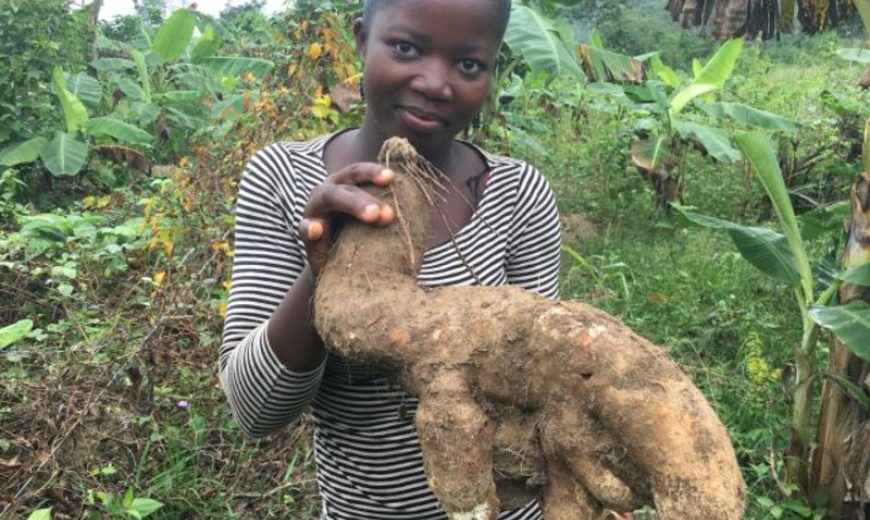13 Apr 2017
Fairtrade International and the International Trade Centre Expand their Cooperation
Fairtrade International and the International Trade Centre (ITC) have signed a new Memorandum of Understanding aimed at improving the livelihoods of small farmers and promoting income diversification.

Image courtesy Alliances for Action
The Memorandum of Understanding, which will run until mid-2021, was signed in March by Fairtrade International’s new Global CEO, Darío Soto Abril, and Gerard Lynch, ITC’s Director of Division of Programme Support.It defines the framework of collaboration between the two organizations and builds on their existing and successful Alliances for Action joint venture in West Africa where the sustainable production of yam was introduced into cocoa farms in Ghana.
A successful start in Ghana
Through this project, the Government of Ghana, the Yam Development Council of Ghana, Chocolats Halba, ITC and Fairtrade have joined forces to empower cocoa farmers to engage in the yam value chain, enabling them to diversify their income. The project is working directly with 270 farmers – half of them women (135) – in two districts: Sankore and Kukuom in the Brong-Ahafo region. The farmers are all members of the 86,000-strong Fairtrade certified cocoa cooperative Kuapa Kokoo Farmers’ Union and the Kukuom Farmers’ Union.
After the first harvest of yams produced as part of the Alliances for Action project, farmers saw an average increase of 22 percent in revenues generated. Women farmers saw an average revenue increase of 26 percent. By increasing trade, crop and income diversification, food security and livelihood sustainability, this collaboration is enabling long-term social and economic benefits for a larger number of farmers, their families and the wider community.
“The project brought obvious benefits like food generation but also unexpected benefits like additional income for school fees and money for the home through the yam production element. For these reasons I would like to continue to participate in the project and it would be great if the project could be expanded to include other farmers so they can benefit too,” said Victoria Donkor, one of the project’s lead farmers.
Expanding the model into other regions
Following Ghana’s successful model of implementation, Fairtrade International and the ITC now plan to further develop and roll out the Alliances for Action framework in other regions and sectors with both Fairtrade and potential future Fairtrade producer organizations.
Fairtrade International and the ITC will be working closely to consolidate and expand the successful Alliances for Action Public-Private Partnership (PPP) model for wider replication. The overall aim is to empower a greater number of male and female smallholder farmers through the development of sustainable livelihood strategies.
Concretely, the ITC and Fairtrade partnership will focus on:
• participatory approaches for development, namely Alliances for Action;
• joint project development and implementation;
• promotion of product and market diversification;
• empowerment of women farmers;
• adaptation to climate change and promotion of biodiversity;
• enabling ethical and sustainable business linkages to increase income diversification;
• strengthening agronomic, financial and commercial management skills of producer groups.
“Collaborating with Fairtrade will help ensure that ITC can deliver better and more sustainable impact beyond certification and compliance. The agreement will help both organizations develop further the ongoing work of the Alliances for Action. It provides the foundation for a solid partnership framework that will help scale up support for more diversified participation of smallholders in global, regional and local trade", stated Anders Aeroe, Director of Enterprises and Institutions at ITC.